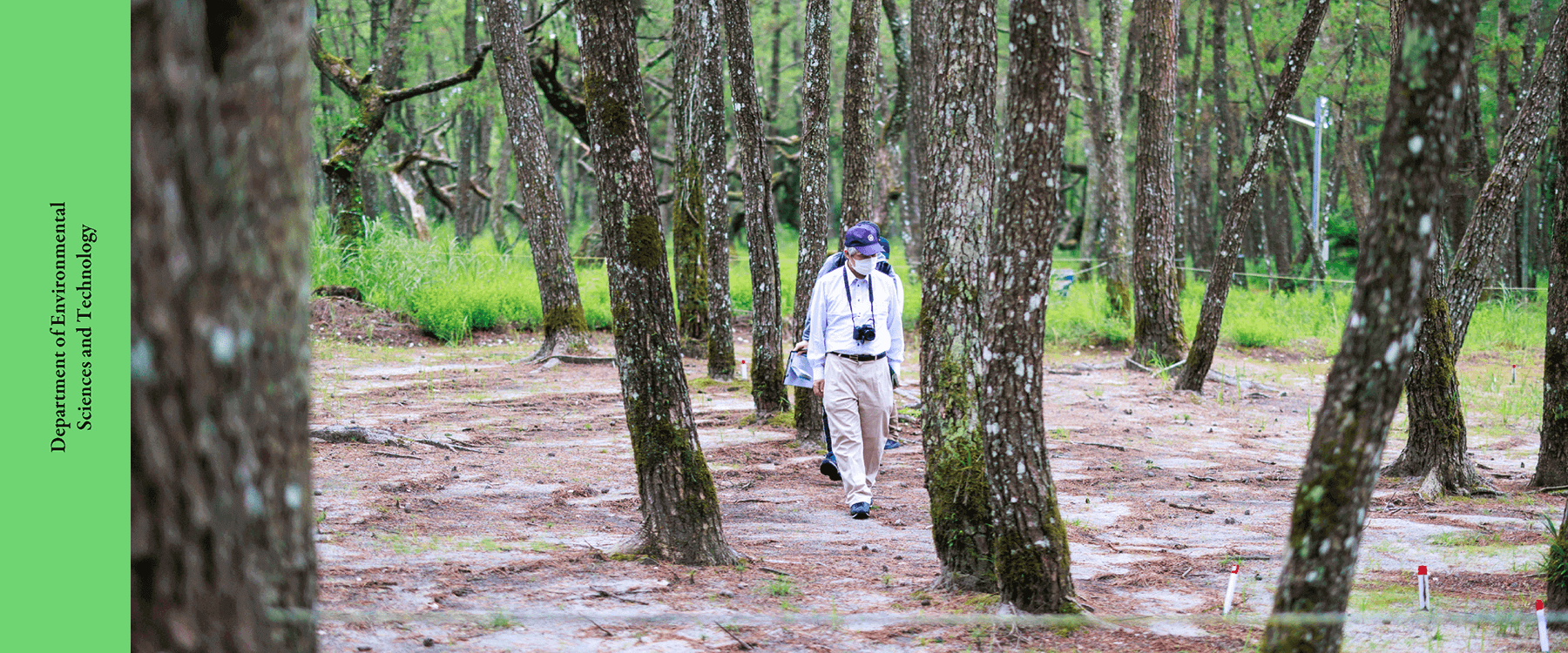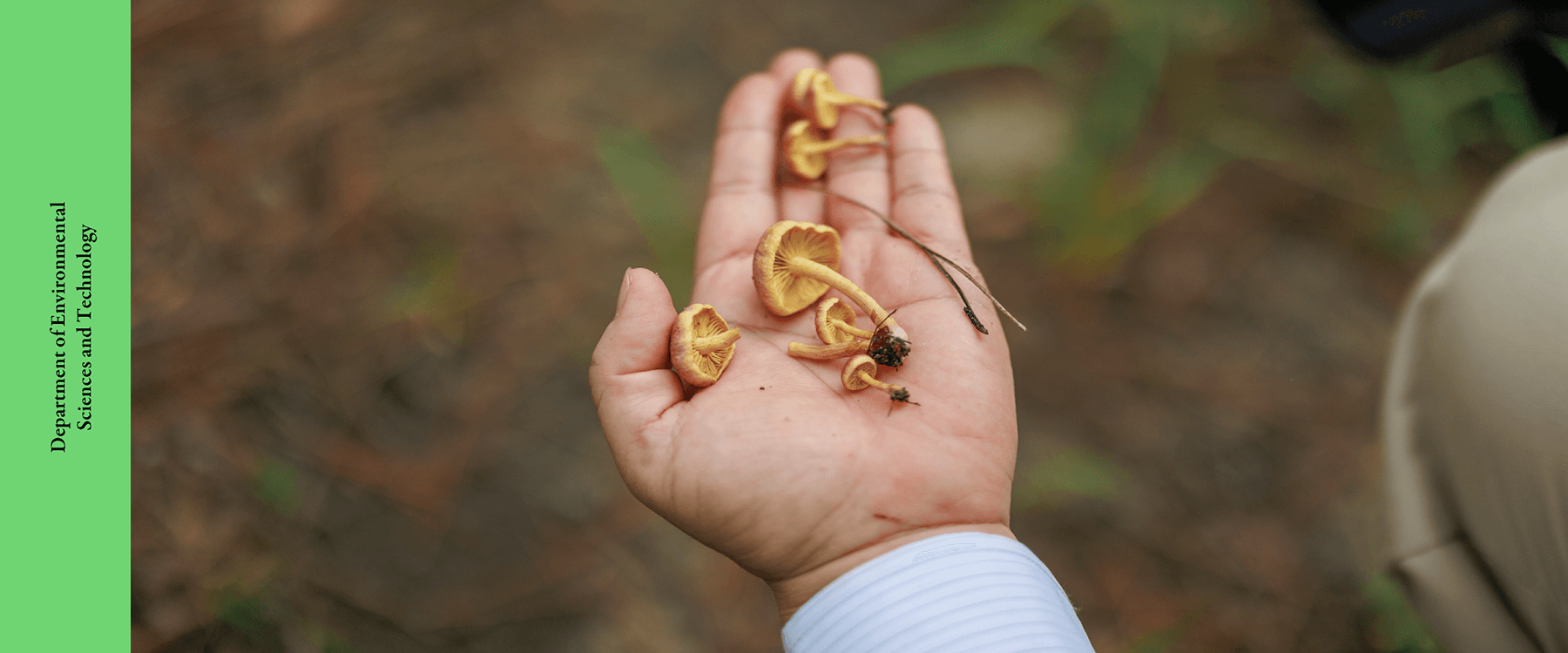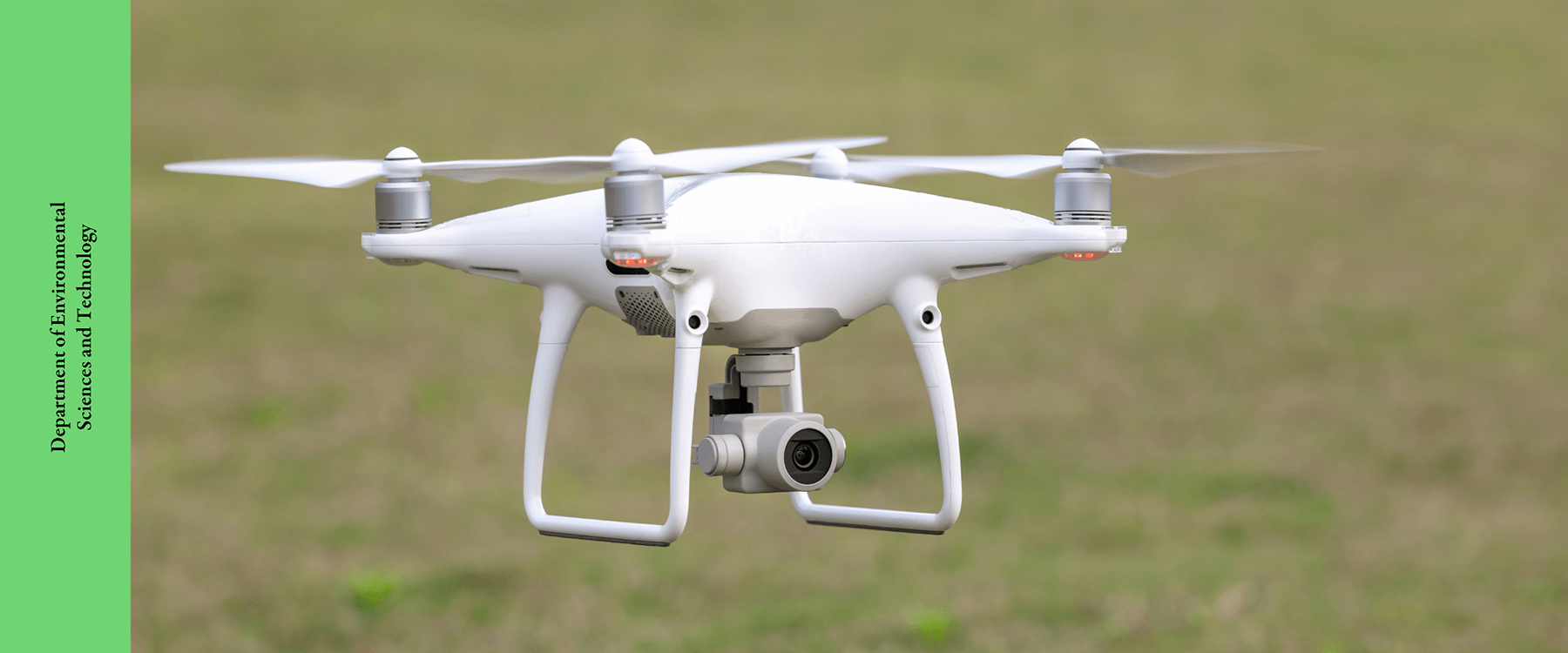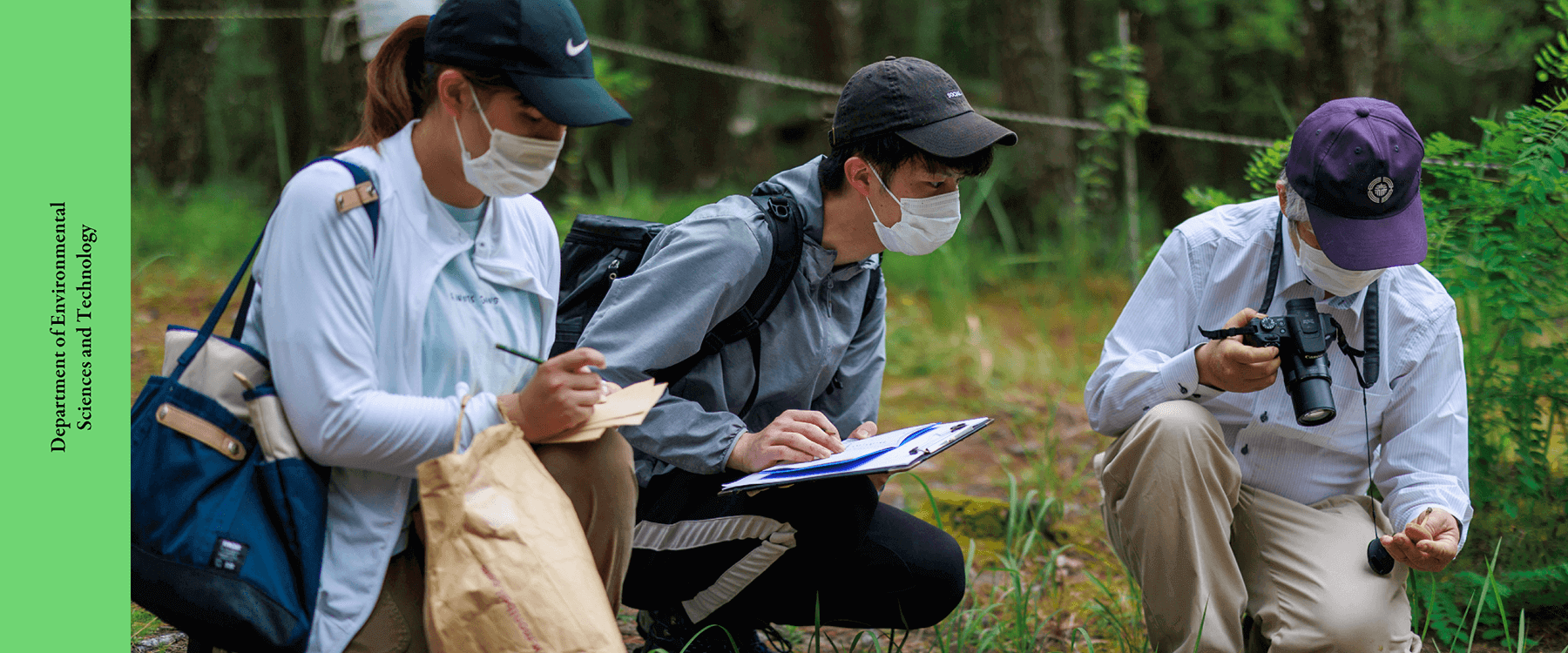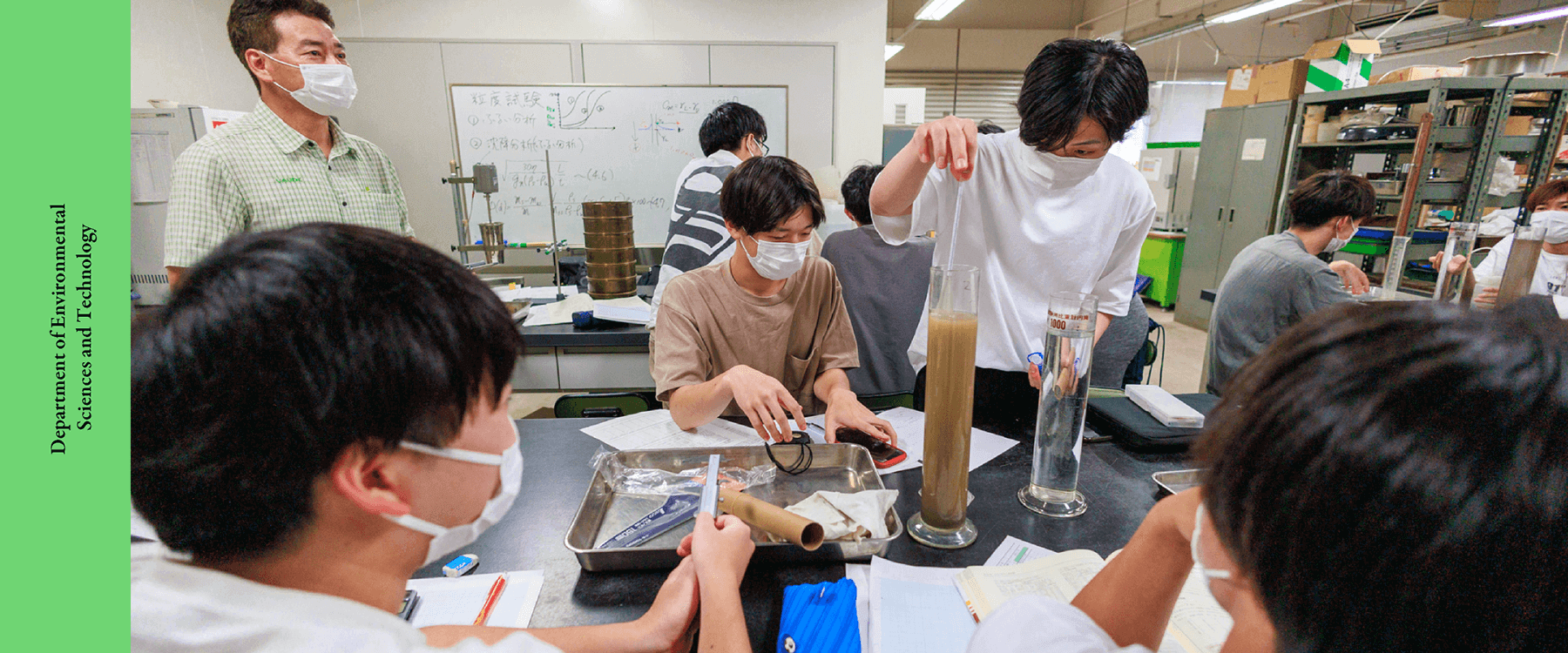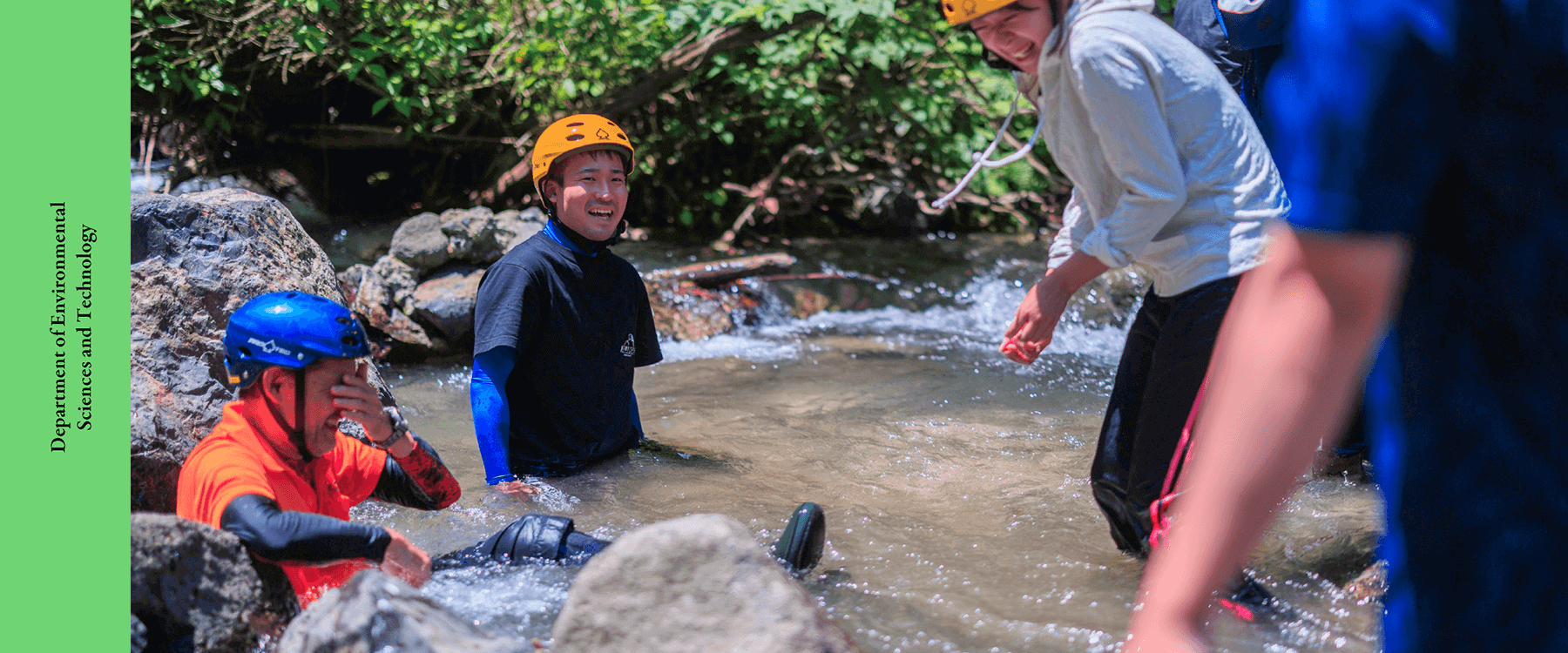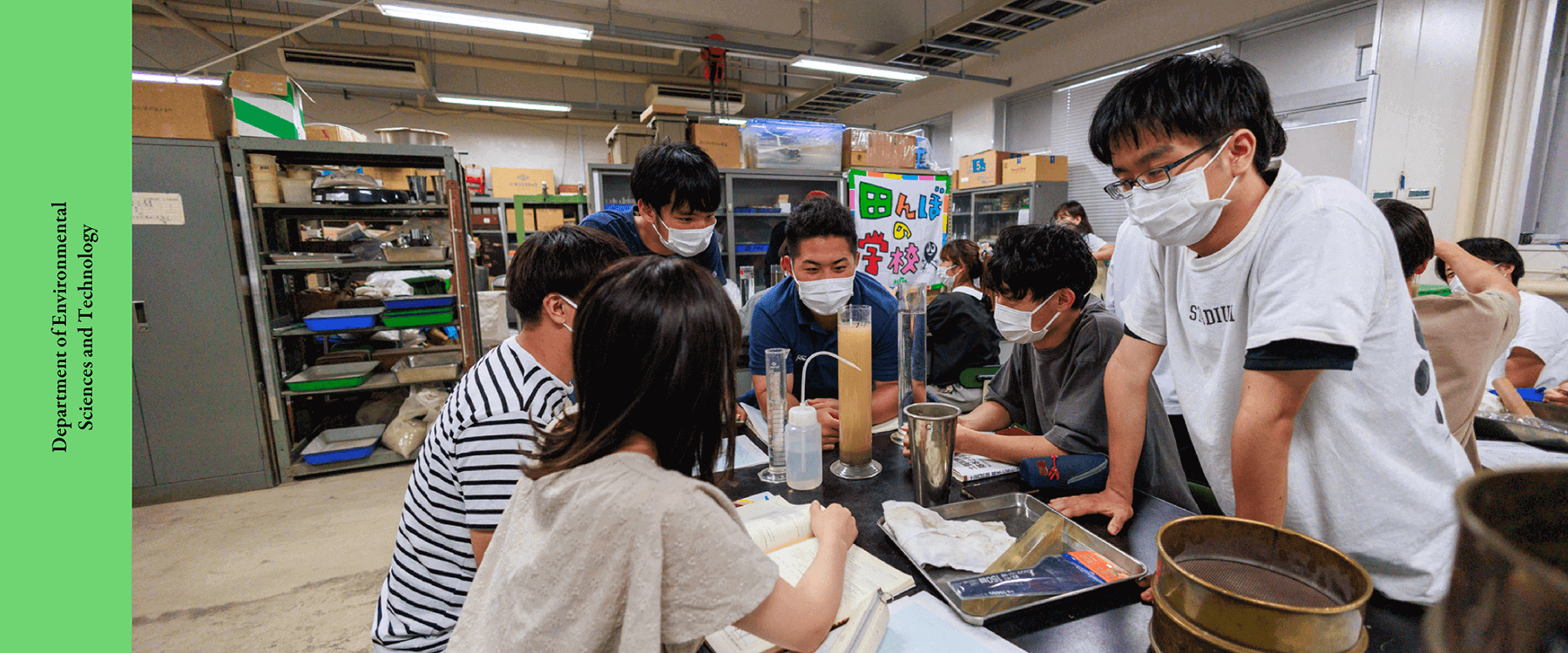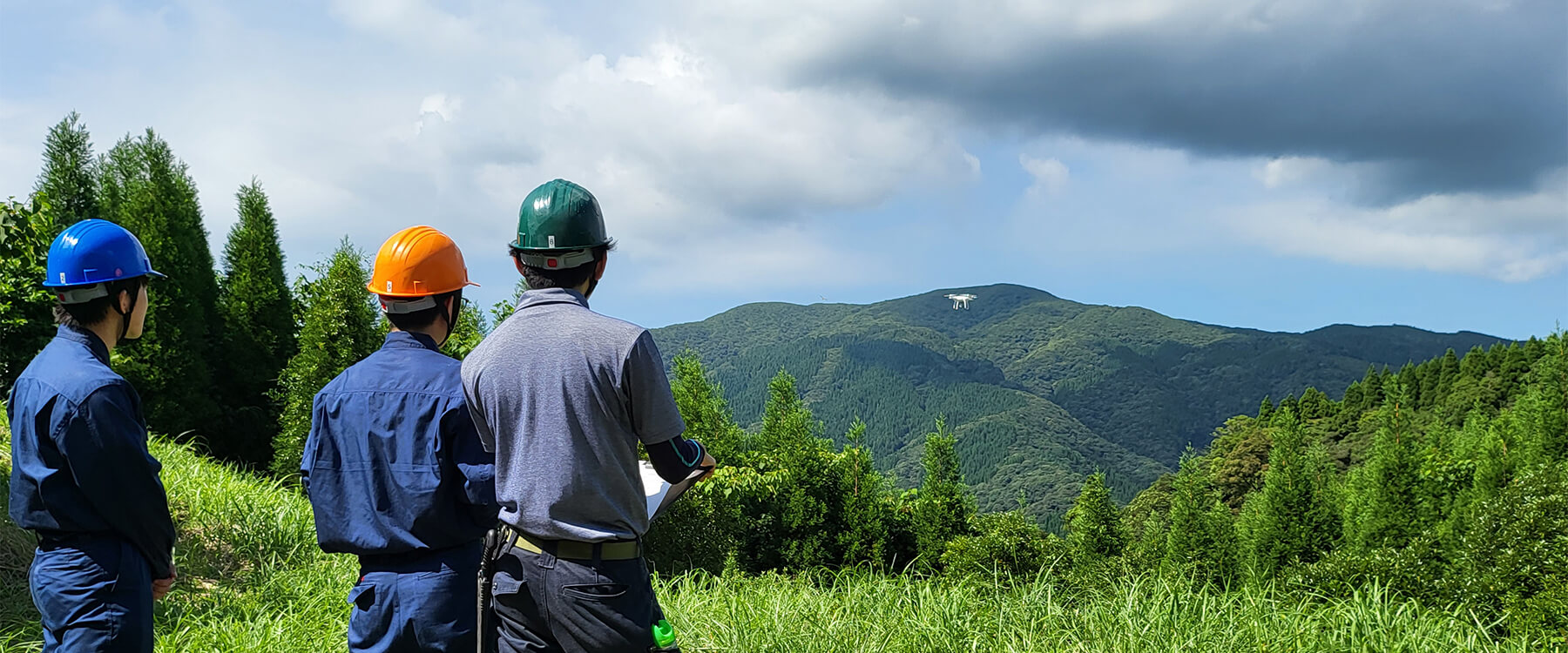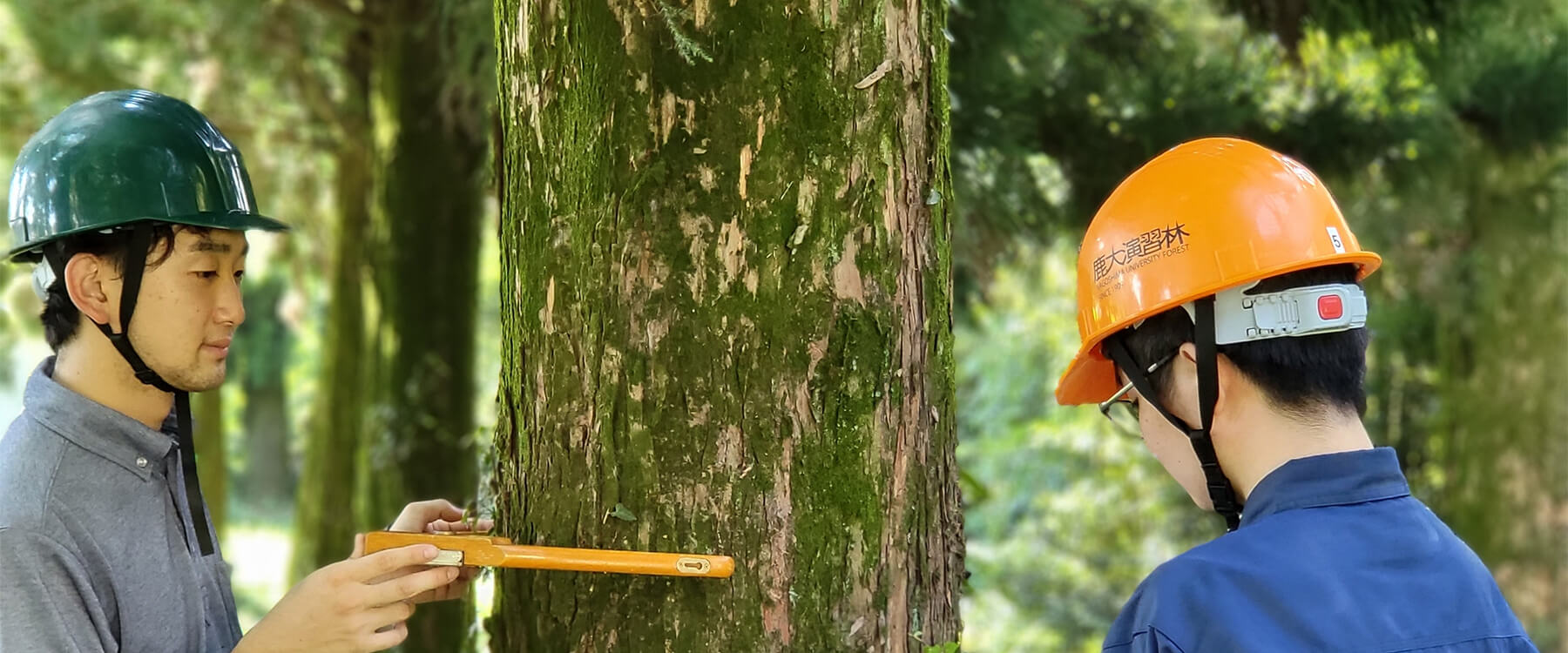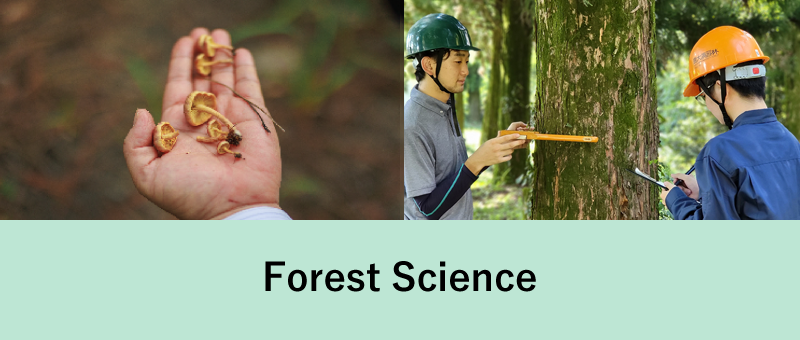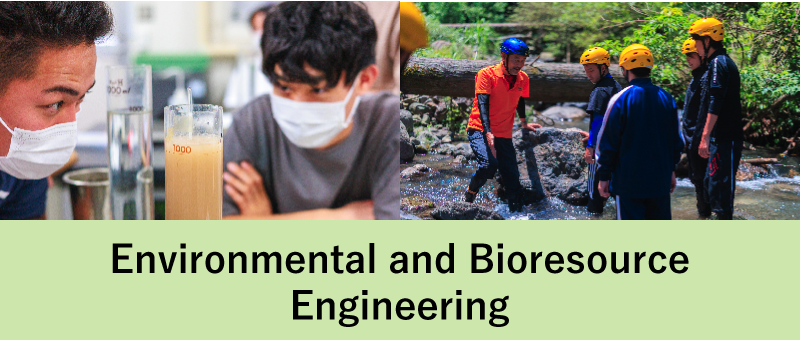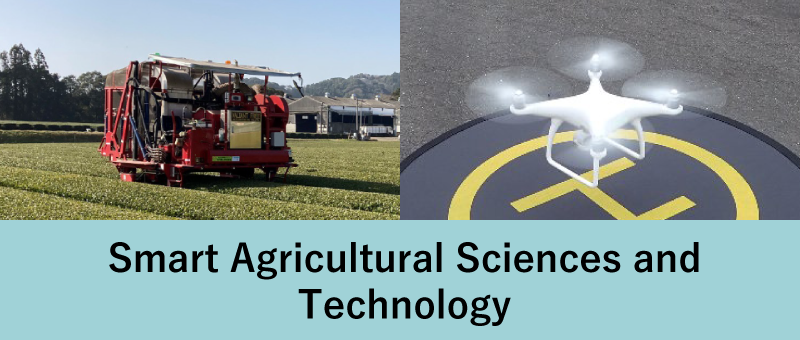course
Department of Environmental Sciences and Technology / 3 courses
Department Introduction
The Department of Environmental Sciences and Technology has three education courses: (1) Forest Science, and (2) Environmental and Bioresource Engineering,and (3)Smart Agricultural Sciences and Technolog. The department provides education and research programs concerning ‘forest ecology, management, and planning’, ‘utilization of forests and forest products’, ‘training for foresters’, ‘biomass production and utilization’, ‘agro-environmental informatics’, ‘erosion control and hydrology’, ‘conservation and management of agricultural lands and water resources’, and ‘environmental education’.
Educational Goals
The educational goals for the Department of Environmental Sciences and Technology are to develop students who will have acquired specialized knowledge and skills in the fields of effective utilization of regional resources, conservation of forest and agricultural lands, disaster prevention, and can also contribute to forming a foundation for agricultural and forest production in harmony with natural environments, promotion of local development, and improvement of the living environment in rural districts.
Admission Policies
Admission Policies
-
A successful candidate will
- have basic academic ability in mathematics, physics, chemistry, biology, geology, geography, history, social studies and a foreign language.
- have interest in and be motivated to study the development of rural areas based on the effective utilization of regional resources and improvement of their environmental conditions, and also the management and conservation of forestry and agricultural lands.
Diploma Policies
- A student will have met the requirements of the department for graduation if they:
- possess a wide knowledge of the liberal arts.
- have acquired specialized knowledge and skills in the fields of environmental sciences and technology, and have acquired the methodologies to deal with various issues regarding the specialized fields of the department.
- have the ability to study research subjects related to environmental science in the field of agriculture and forestry and to summarize it into a graduation thesis.
Curriculum Policies
We provide education that allows students to learn and acquire knowledge of specific education courses of ‘Forest Science’ and ‘Environmental and Bioresource Engineering’ in order to achieve the educational goals of the departments. We also provide education to foster practical abilities through experiments, practical training and practice. The following is an overview.
- In the first and second years, scientific subjects and other subjects of the liberal arts have been established for students to acquire a wide range of education so that they will develop the basic ability to take specialized lectures later in the program.
- From the second year, students are allocated to a specific education course. Lectures and subjects for experiments, practical training and practice have been established so that students will acquire specialized knowledge and skills.
- In the fourth year, students work on their graduation thesis. Students take subjects that help them summarize their research results for oral presentations.

